Revolutionizing Driving: A Deep Dive into the Latest Electric Car Battery Technologies
Electric cars have been gaining popularity worldwide as people continue to seek cleaner and more sustainable alternatives to fossil fuels. One of the most important components of an electric vehicle is its battery, which directly dictates its range and charging time. As a result, researchers and automakers alike have been heavily invested in developing new and improved electric car battery technologies.
From lithium-ion to solid-state batteries, the market has seen a range of advancements in recent years. In this blog post, we’ll explore some of the latest electric car battery technologies and what they mean for the future of clean transportation.
Overview of Current Battery Technologies
Electric car battery technologies have been evolving rapidly, with various types of batteries available in the market. The most popular types of batteries used in electric cars are lithium-ion, nickel-metal hydride, and solid-state batteries. Lithium-ion batteries are the current industry standard and are widely used due to their high energy density and lower weight.
Nickel-metal hydride batteries have been around for a long time and are often found in hybrid vehicles due to their lower cost and high durability. Solid-state batteries are the latest breakthrough in battery technology and are being developed to replace lithium-ion batteries in the future due to their higher capacity and faster charge times. However, they are still in the prototype phase and not available to the public yet.
Despite the advancements, there are still challenges in electric car battery technologies such as high cost, limited range, and longer charging times. Researchers are constantly trying to innovate and improve batteries to make electric cars more practical and cost-effective for everyday use.
Lithium-Ion Batteries
Lithium-ion batteries are a popular choice among modern electronic devices because of their efficiency, low self-discharge rate, and longer lifespan than traditional lead-acid batteries. Today, lithium-ion batteries are utilized in a variety of applications ranging from smartphones, laptops, and electric vehicles to power tools and renewable energy storage. Other prevalent battery technologies, such as nickel-cadmium (NiCd) or nickel-metal hydride (NiMH), have gradually been phased out due to their low energy density, limited lifespan and environmentally harmful constituents.
Although there remains a need for further improvements in the manufacturing process, lithium-ion batteries are a promising technology with tremendous potential for the future. So if you’re looking for a reliable energy storage solution, a lithium-ion battery might just be the right choice for you!
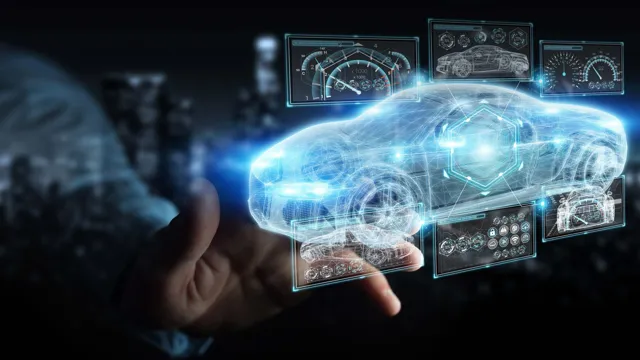
Solid State Batteries
Solid State Batteries Battery technology has come a long way since the first lead-acid battery was invented in the mid-19th century. Today, we have numerous types of batteries, each with their own pros and cons. The most widely used batteries are the lithium-ion batteries which are in most modern gadgets from smartphones to electric vehicles.
These batteries have a high energy density, which means they can store a lot of energy in a small space. However, there are concerns over the safety, cost, and environmental impact of lithium-ion batteries. Researchers have been working on developing solid-state batteries as an alternative.
Solid-state batteries use solid electrodes and electrolytes instead of the liquid or gel-like materials found in traditional lithium-ion batteries. This eliminates the risk of leakage and also allows for higher energy density and faster charging times. Solid-state batteries are still in the development phase but hold great promise for the future of battery technology.
Emerging Battery Technologies
Electric car battery technologies are continuously evolving with the need to reduce greenhouse gas emissions and increase driving range. Emerging battery technologies include solid-state batteries, which use a solid electrolyte instead of the traditional liquid electrolyte, leading to higher energy density and higher safety ratings. Another promising technology is the lithium-sulfur battery, which boasts a higher energy density and lower cost compared to traditional lithium-ion batteries.
Moreover, the development of flow batteries, which utilize a liquid electrolyte pumped through an electrochemical cell, are gaining traction as a viable alternative to traditional batteries due to their longer lifespan and ability to recharge quickly. As these technologies continue to be refined and commercialized, they will play a vital role in facilitating the widespread adoption of electric vehicles, reducing dependence on fossil fuels, and ensuring a sustainable future.
Lithium-Sulfur Batteries
Lithium-sulfur batteries are one of the emerging battery technologies that have the potential to revolutionize the energy storage industry. Unlike traditional lithium-ion batteries that use a metallic cathode, lithium-sulfur batteries use a sulfur-based cathode, which is much lighter and cheaper. Additionally, sulfur is abundant, making it a sustainable and eco-friendly material.
One of the significant advantages of lithium-sulfur batteries is their high energy density, meaning they can store more power in the same amount of space. This feature makes them particularly suited for electric vehicles, which require long-lasting and efficient batteries. However, lithium-sulfur batteries face several challenges before becoming practical for commercial applications.
For example, they tend to degrade quickly due to the unstable nature of the sulfur cathode, resulting in shorter lifespans. Researchers are actively working on developing ways to overcome these limitations, and as the technology advances, lithium-sulfur batteries are expected to become a game-changer in the energy storage landscape.
Flow Batteries
Emerging Battery Technologies As the world becomes more dependent on renewable energy, battery technology is becoming increasingly important. One emerging battery technology is flow batteries, which offer several advantages over traditional batteries. A flow battery uses two tanks of electrolyte fluid, which are circulated through a cell where they react chemically to produce electricity.
Because the electrolyte can be easily replaced, flow batteries can be recharged much faster than traditional batteries. They also have a longer lifespan, making them a more sustainable option. Additionally, flow batteries can be scaled up easily to store larger amounts of energy, making them ideal for use in large-scale energy systems like wind farms or solar power plants.
As with all emerging technologies, flow batteries are still in the early stages of development, but they show great promise in the pursuit of clean, renewable energy.
Graphene-Based Batteries
Graphene-based batteries are emerging as a highly promising technology in the battery industry with the potential to revolutionize the energy storage sector. Graphene has unique properties that make it an ideal material for batteries. It is an excellent conductor of electricity and heat, and its high surface area-to-volume ratio makes it an excellent electrode material.
Graphene-based batteries offer significantly higher energy density, charging speed, and lifespan compared to conventional batteries. Moreover, these batteries are light-weight, flexible, and can be integrated into various devices, including wearables, electric cars, and smartphones. The emergence of graphene-based batteries presents a significant opportunity to overcome the limitations of existing battery technologies and offer sustainable, efficient, and practical energy storage solutions.
As research into graphene-based batteries continues, we can expect to see more advancements and practical applications in the future.
Future of Electric Car Battery Technologies
Electric car battery technologies are advancing at a rapid pace, and this has prompted automakers to invest heavily in researching new solutions. Lithium-ion batteries, which are currently the most common type used in electric cars, are facing tough competition from solid-state batteries, which offer a safer and more efficient alternative. Solid-state batteries have the potential to hold more energy, be lighter in weight, and allow electric cars to travel further on a single charge.
Another major area of research is in battery recycling, which is becoming increasingly important as the demand for electric cars grows. The development of recycling technologies could help reduce the environmental impact of battery production and disposal. Overall, the future of electric car battery technologies looks bright, with manufacturers working tirelessly to make electric cars a more economically viable and environmentally sustainable option for drivers.
Electric car battery technologies show the increasing need to balance efficiency and innovation with sustainability and eco-friendliness. There is a rising trend in recycling efforts due to the integration of more reliable, safer, and cleaner electric car batteries. Hence, the need emerges to come up with a more accessible and cost-efficient method of recycling batteries alongside reducing the overall environmental footprint for the production processes.
The future of electric car battery technologies is set to change the way we drive and navigate our world as we shift from fossil fuels to accessible, long-lasting, and cost-efficient solutions.
Increased Energy Density
Electric Car Battery Technologies The future of electric car battery technologies looks bright as manufacturers focus on increasing energy density. This involves packing more power into a smaller space, which will greatly improve the range of electric vehicles. Energy density refers to the amount of energy stored per unit volume of the battery cell, and it is one of the most important factors in determining the driving range of an electric vehicle.
By increasing energy density, automakers can make electric cars that are more practical for longer trips without needing frequent recharges. As battery technology continues to evolve, we can expect to see electric cars with ranges beyond 500 miles becoming more prevalent. This is great news for environmentally conscious drivers who are looking for a reliable, long-range alternative to traditional gas-powered vehicles.
With the advancement in technology, electric cars can now compete with gas-powered cars, not only when it comes to reliability and range, but also in terms of performance and convenience. The era of the electric car is truly upon us, and it’s exciting to see what the future holds.
Decreased Cost
Electric Car Battery, Decreased Cost, Future One of the biggest hurdles electric vehicle manufacturers have faced is the high cost of batteries. However, with advancements in technology, the future is looking bright for electric car battery technology. Emerging technologies such as solid-state batteries, lithium-sulfur batteries, and sodium-ion batteries have shown promising results.
These new battery types offer higher energy density, faster charging times, and even better safety than traditional lithium-ion batteries. In turn, this will lead to a decreased cost per kilowatt-hour of energy stored in the battery, which will make electric vehicles more affordable for the average consumer. Additionally, as demand for these new batteries increases, economies of scale will kick in, further driving down the cost of production.
Overall, the future of electric car battery technology looks promising, and we can expect to see increased adoption rates as cost continues to decrease.
Conclusion
Electric car battery technologies have been rapidly advancing in recent years, with innovations such as solid-state batteries and improved lithium-ion chemistry paving the way for longer driving ranges and faster charging times. But it’s not just about the technology itself – electric cars offer a cleaner and more sustainable way to travel, helping to reduce our carbon footprint and minimize our impact on the environment. So while the future of electric cars may be powered by cutting-edge battery technologies, it’s really all about driving towards a brighter and more sustainable future.
“
FAQs
What are the different types of electric car battery technologies?
There are several types of electric car battery technologies, including lithium-ion, lead-acid, nickel-metal hydride, and solid-state batteries.
What is the lifespan of an electric car battery?
The lifespan of an electric car battery varies depending on the type of battery and usage, but it can range from 5 to 20 years.
How long does it take to charge an electric car battery?
The time it takes to charge an electric car battery depends on the type of battery and the charging method used. Some charging methods can take as little as 30 minutes, while others may take several hours.
How sustainable are electric car battery technologies?
Electric car battery technologies are generally considered to be more sustainable than traditional gasoline-powered vehicles, as they emit fewer greenhouse gases and are more energy-efficient. However, the production and disposal of batteries can still pose environmental challenges.
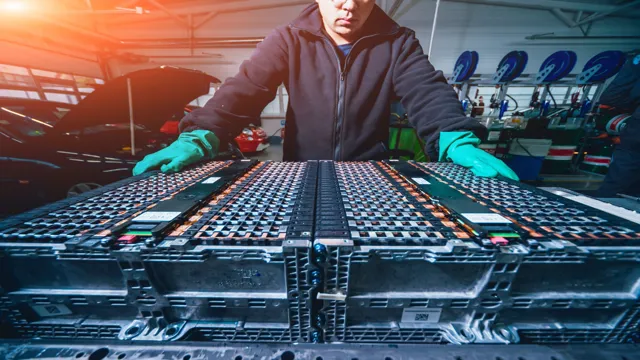
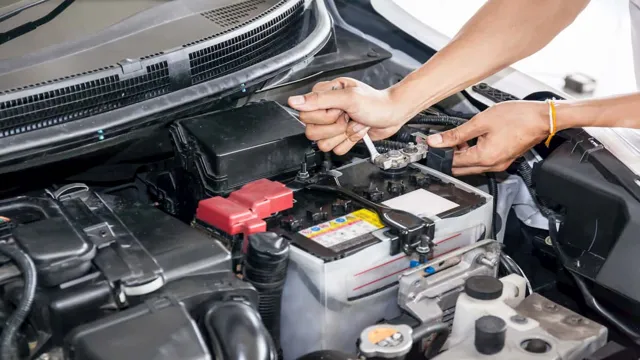
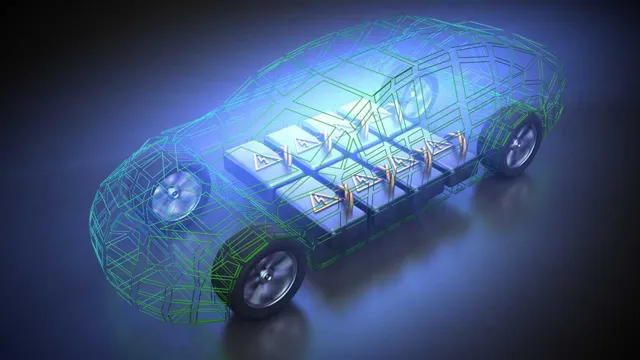
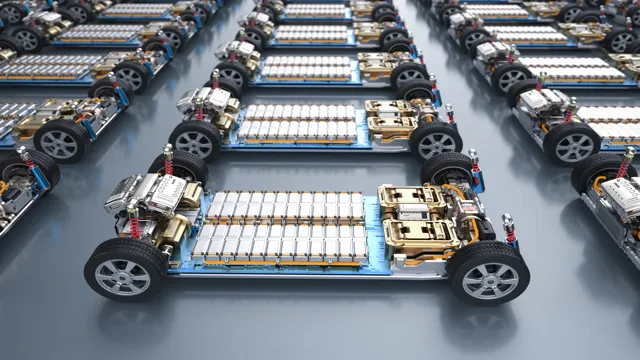


![Revolutionizing the Future: The Groundbreaking Electric Car Battery Made Up Of [Insert Material]](https://electriccarwiki.com/wp-content/uploads/2023/12/electric-car-battery-made-up-of.webp)